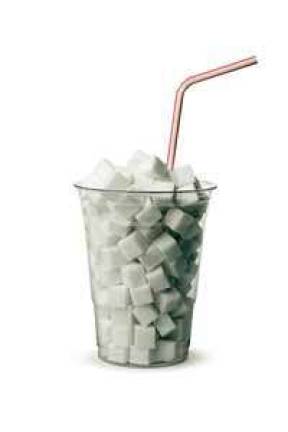Soda Ban Sweet Music to Some East Siders

Since Mayor Michael Bloomberg announced his plan to institute a citywide ban on the sale of large sugary beverages, health experts, politicians, vendors and consumers have weighed in passionately on both sides. While many prominent people from former president Bill Clinton to the chair of nutrition at the Harvard School Public Health have voiced their support, others, like City Council Speaker and presumed mayoral candidate Christine Quinn, have expressed skepticism that the measure would affect obesity rates. Upper East Side residents have also been outspoken about the ban. Some, like Amy Cameron, praise the mayor's fight against obesity. "I see the younger generation walking around with these sports drinks that they don't even know have so much sugar in them. Then they wonder why they feel sluggish, or maybe put on a few pounds," Cameron said. "Banning these drinks forces manufacturers to be held accountable." Bloomberg's proposal would amend New York City's health code to eliminate the sale of soda and other sugary and high-calorie drinks in containers larger than 16 ounces. Vendors found not to be complying would be fined about $200 per violation. If implemented, the restrictions would apply to restaurants, mobile food carts, movie theaters, delis and other eateries; convenience stores and supermarkets would be exempt. Sweetened drinks with more than 25 calories per eight fluid ounces would be rendered taboo, while dairy drinks comprised of more than 50 percent milk or milk substitute, beverages containing at least 70 percent juice and diet sodas would still be available for large-volume consumption. Kathy Rivera, a barista at a Starbucks on the Upper East Side, also said she is struck by the amount of sugar and calories young people consume in beverages alone. "We have children come in here all the time and get venti [extra-large] drinks, and I don't think it's healthy for kids at 8 a.m. to be getting these drinks," Rivera said. "I don't think [the ban] is such a terrible idea." Still, some Upper East Siders argued that the ban, although promoting a positive goal, will be largely ineffective in curbing obesity. One resident, Fred, who declined to give a last name, said he supports the idea behind the proposal, but called its parameters "ridiculous." "I could just buy three of these," he said, pointing to a can of soda. "They're just banning the size, not how many. It's absurd." Some nutritionists, including Dr. Jamie Kane of Park Avenue Medical Weight & Wellness, agree that the restriction on large sodas will be ineffective at reducing obesity rates in the city. "People are still going to be addicted to sugary drinks?and there's nothing stopping people from going back for seconds," said Kane, a weight loss specialist who focuses on obesity. "I'm skeptical that this alone will have a major impact in the short-term." "Even if you're not having the large beverages, there are other ways to get the calories," added dietician and nutritionist Amy Fleishman. "I've applauded [Bloomberg's] efforts in trying to make this a healthier neighborhood, but it's a very specific way to fix the problem and I don't think it's going to solve the bigger picture." Still, Kane and other nutrition experts noted that the ban could serve to spark conversation and perhaps increase awareness of the city's obesity problem. "If it can help train people to expect smaller amounts, maybe that wouldbe helpful," Kane said. Although the Department of Health puts the rate of adult obesity within the city at around 22 percent, Reuters reported in 2010 that obesity rates in a few of the city's more affluent neighborhoods-including the Upper East Side-remain significantly lower, at around eight percent. "I don't think it will really affect people here. You don't really see people walking around up here with those huge drinks," said another Upper East Side resident. Bloomberg's proposal was submitted Tuesday to the New York City Board of Health, which will vote on its passage after a three-month deliberation period that will include public hearings. If approved, the ban would take effect early next year.